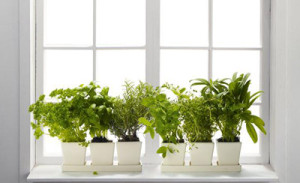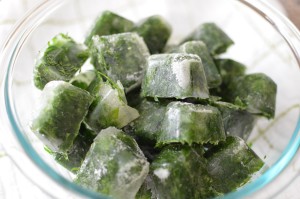 You Can Grow Your Own Fresh Food Almost Anywhere!
You Can Grow Your Own Fresh Food Almost Anywhere!
Histamine develops and accumulates to high levels in aging food. Eating old, long-stored food can provoke symptoms in people with histamine intolerance.
The best way to make sure your food is fresh is to grow it yourself. If you can simply reach out and pick a few lettuce or rocket leaves, or pull up some carrots or pluck some herbs, you can not only stay healthy, you can cut down on ‘food miles’ and your grocery bills. You can ‘eat fresh’ every day. If you don’t happen to live on a farm, you can still enjoy your own fresh vegetable patch.
In the USA, gardeners like Paul Wheaton are spreading the word about growing your own organic foods sustainably and living in small spaces. HGTV has free online articles with helpful suggestions, such as Intensive Gardening Makes Small Spaces Work Double Time and Edible Gardening in Small Spaces.
The Univeristy of Maine in its article on Gardening in Small Spaces says, “At a time when Americans are overweight and under-exercised more than ever before, consider that a 150-pound person working in the garden will burn approximately 350 calories per hour. That’s roughly equivalent to doing low-impact aerobics, playing softball, pulling a cart while playing golf, walking at a very brisk pace, or playing vigorously with children. Of course, consuming home-grown vegetables is good for your health as well. Fresh vegetables are loaded with vitamins, antioxidants, and fiber, all of which play a role in cancer prevention and general good health. And when you grow your own vegetables, you know exactly how they were grown and where they originated—issues of food safety and security that are becoming more and more important to our society.”
Alan Titchmarsh, arguably the most famous gardener in the UK, says, ““I think it is a very underrated mission, encouraging people to grow things and to look after that little patch of ground outside their house. Hopefully [his TV gardening series] shows just how important gardens are. It sounds like a grandiose claim, but they can, and do, change lives. They are a safety valve, an oasis, a sanctuary, somewhere to feel at one with nature, all of those things. I always call them an escape to reality because that is the real world, really. And if you can make a garden that suits you and your sensibilities, you realise its value. It will aid the environment immeasurably and give them enormous solace, stimulation and pleasure.” His book “How to Garden: Vegetables and Herbs” is useful for UK gardeners.
Your own Backyard
Clive Blazey, the Australian founder of the Digger’s Club, says, “If you plan your garden carefully, you can grow a remarkable amount of produce in only a few square meters of space. To feed a family of four for a whole year, you only need 40 square meters of ground.” One of Mr Blazey’s “mini plots” could easily fit into the area occupied by a small suburban backyard. Or, to feed one person for a year all you require is ten square meters of ground.
Mr Blazey’s method is based on successional plantings, and you can read about it in his book The Australian Vegetable Garden. The method can be adapted to any country or climate.
Your Courtyard, Deck or Patio
Containers such as flower pots, tubs and hanging baskets can be used to grow your own fresh produce in small spaces.
Your Roof
Roof gardening is growing in popularity. Up there, there’s plenty of sunshine for growing plants. As an added bonus, growing vegetables on a roof can be a great way to insulate a home or office space. Do your research first – you need to be able to safely access the roof and make sure it’s properly waterproofed.
Your Windowsill
No home is too small to grow herbs and salad greens for the kitchen. Potted plants can thrive even on a sunny windowsill. Freshness means low histamine, and growing your own living herbs for muffins, garnishes, main courses and salads etc. is the best way to ensure freshness. Products like the ‘Jiffy Windowsill Greenhouse” can help.
Get Plants for Free!
You don’t have to always buy plants, seedlings and seeds. Once you have a plant, you can propagate more. Find out how to make your own new plants from old, using simple techniques such as seed-saving or taking cuttings. Propagating Fruit Plants will tell you how.




